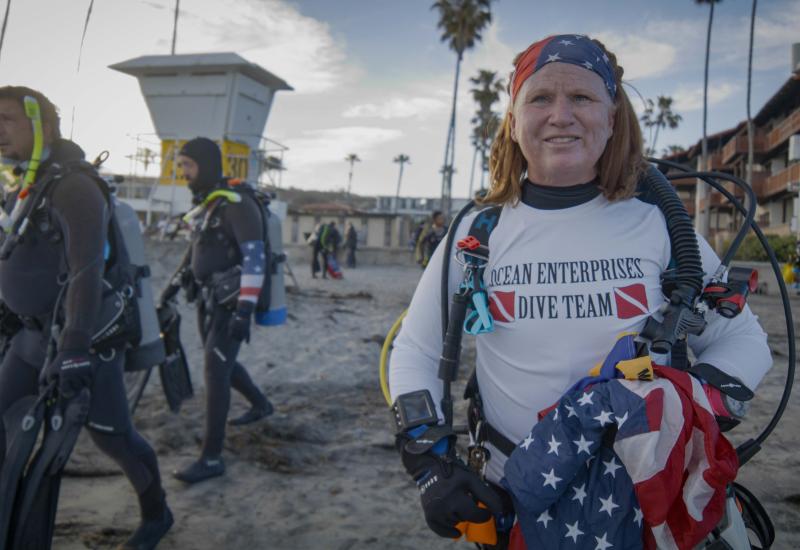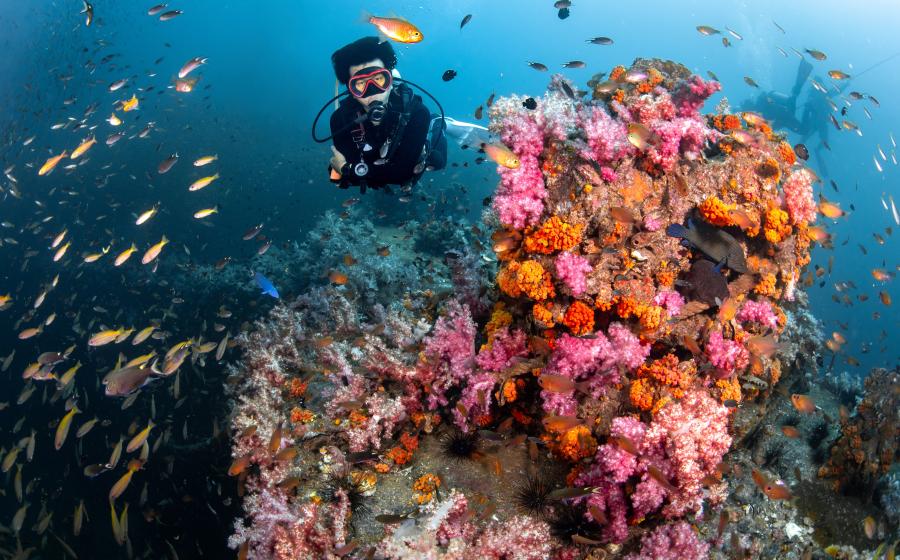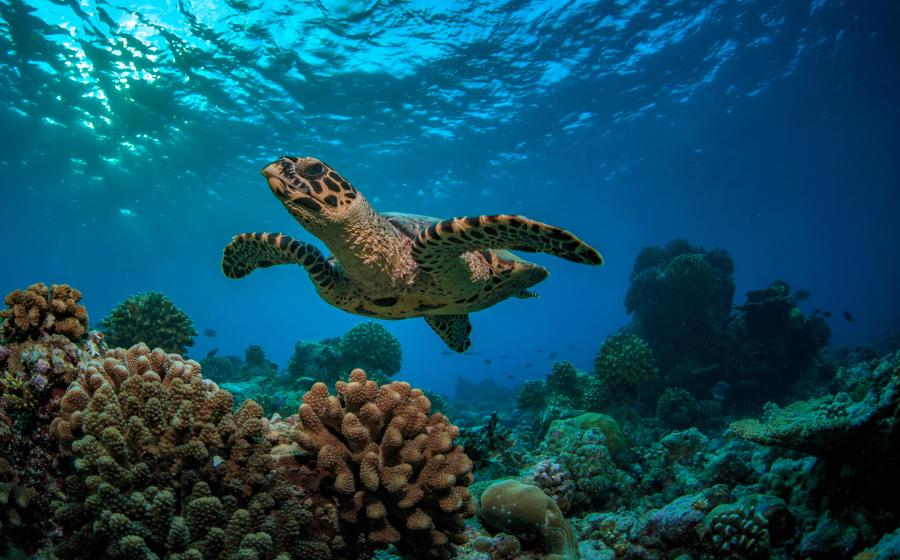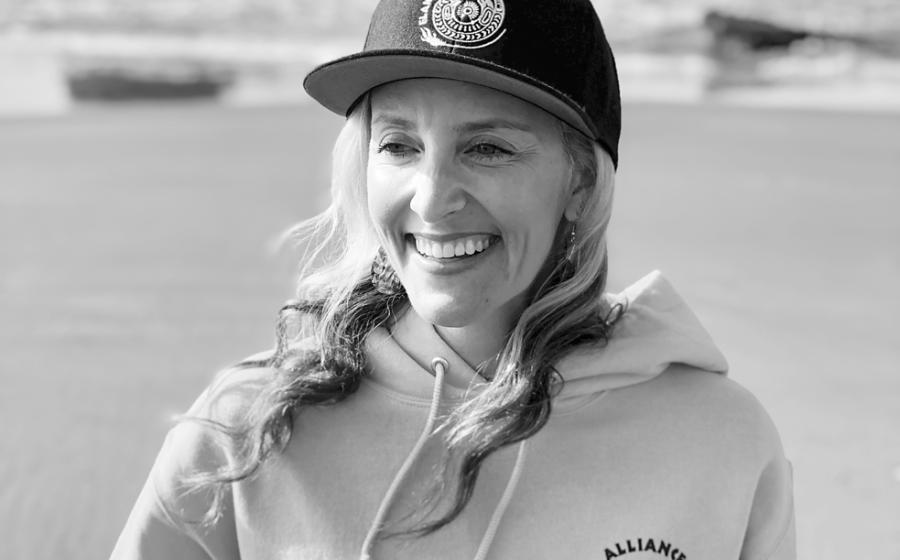Meet Ocearch Founder and Scuba Diving Sea Hero Chris Fischer
Our Sea Hero program celebrates divers working to save our seas through action-oriented education, conservation, exploration or innovation. Nominate a Sea Hero
Scuba Diving Sea Hero Chris Fischer
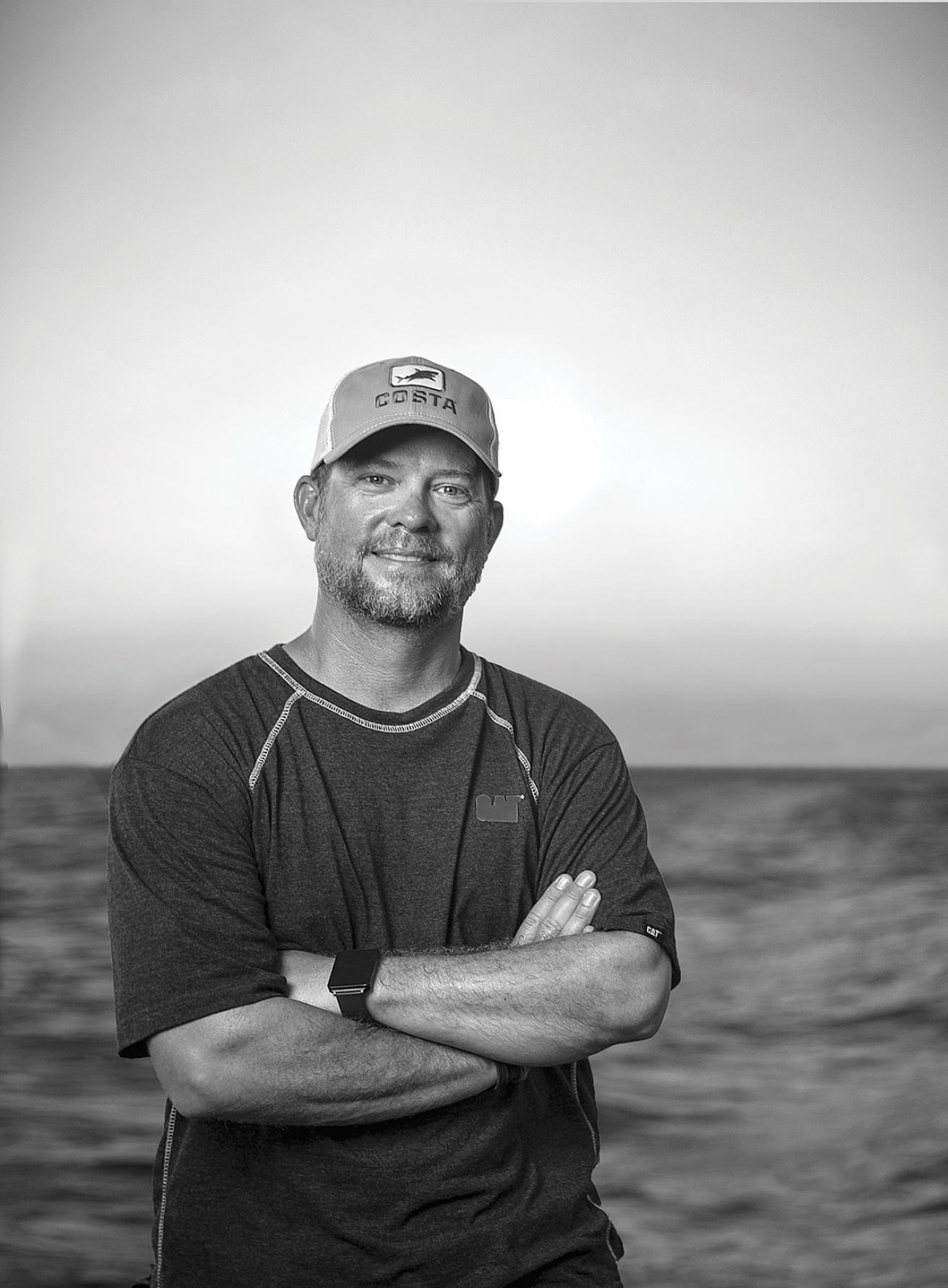
Courtesy Ocearch/Rob SnowMeet Chris Fischer, who founded Ocearch using an innovative approach to shark tagging and great white shark research.
Occupation: Founder, chairman and expedition leader of the shark research organization OCEARCH
Years diving: 26 years
Certification Level: Open Water
Words to live by: "You only live once."
The word revolution conjures images of dramatic, fundamental and enduring change, and it’s one that shark conservationist Chris Fischer embraces in his life’s mission. In the early 2000s, Fischer helped create an Emmy award-winning television show, Offshore Adventures, in which he practiced sustainable catch-and-release fishing. The turning point in his career came when he realized how crucial sharks were to the ocean’s ecosystem and how little researchers knew about them. Fischer purchased a former crabbing vessel outfitted with a powerful lift, which would enable researchers to tag sharks. OCEARCH was born. For his dedicated, inventive approach to shark conservation, Fischer is our November/December Sea Hero.
Q: OCEARCH’s approach to ocean science is open-source and social-media driven. How did that come about?
A: We always had a desire to open source our work to include as many people as possible. We wanted to democratize the ocean research and exploration spaces — make it by the people for the people instead of by the individual for the individual or by the institution for the institution.
With the current direction the ocean is trending in, there simply is no time left for individual/institutional agendas. Open sourcing our research and exploration provides an opportunity to engage the world in the ocean space at a scale unseen since Cousteau. We need that kind of scale along with “blue chip” substance (science) if we are going to make a global impact on our oceans. It’s been a simple formula from the beginning. Blue Chip Substance + Radical Scale = Global Impact.
The social media and earned media aspects of OCEARCH began organically.
After 40 hours of television around our work on The National Geographic Channel and The History Channel, we had built a global brand in 150 countries and in 29 languages. After the show was cancelled, we had some money left for one more expedition. I had promised the researchers in the Cape Cod area that I would help them after tagging 40 white sharks in South Africa. So I took the last of my personal savings and decided to fulfill that promise, and we sent the ship to Cape Cod.
Since we were no longer making the show, we could include the community and press in our final trip. We invited everyone to come and see what we believed to be our last expedition in September of 2012. The strategy was to include as many people as possible so the “lore” or stories from that expedition would be as accurate as possible. We felt that if we tagged a mature shark and began to unlock the life history puzzle of the North Atlantic white shark (“Jaws”) that it would become part of the local history. If many people witnessed it, then the stories would be more accurate over time, which is why we invited lots of different people from the community as well as the press for this one last expedition.
What happened shocked us. During the expedition, we tagged Genie and Mary Lee off Cape Cod and the entire community was there to see it. During our time on TV, we averaging 20,000 or so viewers a year; however, the resulting social scale and earned media scale from the expedition registered over a billion impressions for OCEARCH’s last quarter in 2012. Suddenly, we realized there was a different way to achieve scale. The question was: Could we develop enough scale to become our own channel? Could we drive enough scale to make it worth it for socially responsible companies to fund our work and be an efficient branding buy for them? Could we develop an enterprise that would make it worth it for companies to help create a future for the resource and have it be worth it for them because it’s an efficient branding buy?
Al Perkinson, the senior vice president of marketing at Costa Sunglasses, was a mentor and dear friend who began teaching me how to build a social community with a brand that included content and social channels. We listened and learned, and have been growing ever since.
Last year, OCEARCH had a potential reach of over 13 billion impressions due to open sourcing our content on exploration, science and education. It’s the Google model — give the product and content away, create radical scale and monetize the scale, not the content or data. It became a simple mantra: “You have to give it away if you want to hold on to it.”
In 2015, we drove a potential reach of $68 million in scale to fund $2 million of research. Clearly an efficient branding buy for socially responsible companies that focus on integrating their brand into content and sharing it across all platforms.
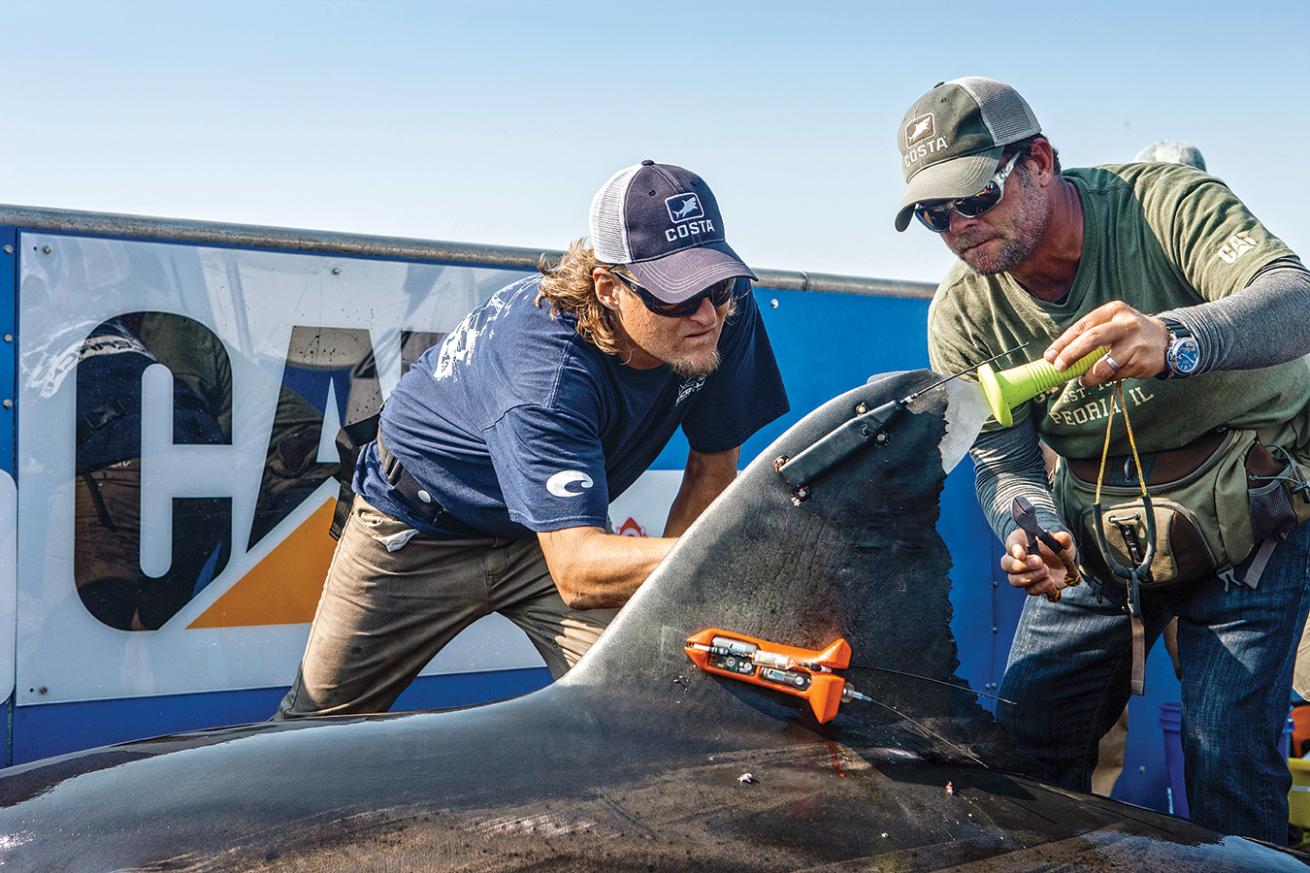
Courtesy Ocearch/Rob SnowOur Sea Hero for November/December 2016 is Chris Fischer, who founded the innovative shark research organization OCEARCH.
SEE THE LATEST PROJECTS FROM OCEARCH
Q: Why was the open-source mandate so important to you? Why does it matter for the future of our oceans?
A: Open sourcing allowed the world to participate in the project while being aware of the developing science. We are going to need this community when the time comes to drive policy, based on the published papers that would come from our work. No one organization is going to move the needle for the world’s oceans; it’s going to take us all. People, companies and communities will need to come together if we are going to ensure future generations have an abundant ocean. Open sourcing and inclusion — at every level — is the only path forward.
Q: When you visited us in Winter Park, Florida, you seemed to say that the white-shark-tracking in social media that’s caught the public’s attention really isn’t what OCEARCH is about — what would you want readers to take away from this interview as far as what Chris Fischer and OCEARCH are about?
A: OCEARCH is a model of collaborative science, content development, and multi-media distribution in an open-sourced enterprise that can be applied to any significant challenge mankind or the planet is facing. It’s a model that makes it worth it for socially responsible companies to create a future for the planet by delivering enough scale around an issue to make it an efficient branding buy. We want to share that model to get as many organizations possible moving forward for us all. What’s going on at OCEARCH almost has nothing to do with sharks. The white shark just showed us the way.
Q: What are your 5-year or 10-year goals for OCEARCH? Yourself?
A: Short-term, we are always focusing on making sure we have our funding in place to continue providing scientists around the world a platform to explode their science forward while open sourcing the content created and the data collected.
Currently, I am trying to figure out how to place OCEARCH or give OCEARCH away so that it lasts beyond any individual. That could mean placing it at an institution, a foundation or endowing it. I want to make sure OCEARCH does not die when I die. It’s clearly bigger than any individual now and we did not build OCEARCH to hold on to it, we built it to give it away to the future.
We are developing smaller, more mobile vessels that can be shipped around the world to science communities to assist in studying large apex predators and marine mammal rescue. The vision is to have many vessels around the world pioneering the research necessary to create an abundant future for the ocean while open sourcing all the content and science around it. This is a much more efficient approach to closing data gaps.
The global shark tracker needs to evolve from a shark tracker to an ocean tracker and ultimately a planet tracker. This will appeal to communities beyond the ocean and allow students to select the dynamic data set that most interest them to leverage in our open sourced K-12 STEM educational curriculum.
Q: You also spoke passionately when you were here about the educational aspect of bringing OCEARCH to schools and students — tell us a bit about how OCEARCH is impacting classrooms? What results do you hope to see from that outreach?
A: When we open sourced the tracking of sharks through the OCEARCH Global Shark Tracker, we never dreamed how many students would begin tracking sharks. It became clear to us and to educators that we had found a way to engage students in a real-time science project. Since we had the focus of young people, we decided to develop a K-12 STEM based NGSS (Next Generation Science Standards) written and integrated into the real time tracking of sharks. This would allow students to follow their favorite sharks and learn the skills to be data driven resource managers of the future as well as the skills to get a good job.
Recently, Discovery Education began distributing our curriculum to 30,000 students nationwide. The curriculum has also become available in the metric system and 256 languages.
We must not only pioneer science and data to affect management in the short term, we need to develop the data-driven centrist resource managers of the future. The Educational program is an attempt to do that.
We are seeing classrooms use the curriculum, engage in the real-time tracking and ask questions to our research teams and Skype with us. It is education in the now.
Q: What is the biggest challenge you have faced in establishing OCEARCH?
A: Disrupting old institutional agendas was the most difficult thing to overcome, initially. Once collaboration and open sourcing were clearly demonstrated as the only approach that would allow us to learn what had never been learned before at a rate never achieved, the skepticism of people became the toughest challenge to overcome.
Many could not believe that we were simply trying to build an enterprise to serve scientists and open source it to the world for the ocean and its future; some thought we had a diabolical plan or an agenda. All we were trying to do was solve the life history puzzle of the balance keepers of the ocean so we could have the data to manage toward abundance — data that currently does not exist and is fundamental if we want to ensure future generations can eat a fish sandwich.
Q: What do you view as the most critical issues in marine conservation today?
A: The lack of awareness about the status of the ocean and its trajectory, as well as data deficits in many areas, are the reasons why we can’t create a future of the ocean. For the most part, we don’t know where our fish go. If we don’t know where our fish go and what they are doing, how can we ensure they will be there in the future?
Q: What's been your most satisfying moment?
A: Creating a shark first/ocean first community at scale that is drowning out the emotional fringe that paralyzes progress in the ocean management.
Q: Tell us a little bit about what you are working on now?
A: We are planning our 2017 expeditions. We are working on developing a smaller vessel that is more agile with a program around it that can allow us to learn faster, open source more, and effect change sooner. We are trying to place OCEARCH at an Institution, foundation or endow it so it can be given to the future forever. It’s clearly larger than any individual now and should not die with any individual.
Q: How can Scuba Diving's readers help further your work?
A: It would be amazing if every scuba diver did at least two cleanup dives each year. We have to #KickPlastic by eliminating as much as we practically can from our lives and by cleaning up what is already in the ocean, around jetties, beaches and reefs. It would be powerful if every scuba diver did at least two cleanup dives per year.
Q: What's next for you?
A: Giving OCEARCH away to the future is one of my primary focuses as we continue to work in the Atlantic, Gulf and Caribbean over the next five years. We want to enable the North Atlantic White Shark Research Team to have enough sharks tagged to lock down where and when they are mating, giving birth and migrating.
White sharks are the balance keepers of the ocean and understanding their lives is crucial to manage the entire resource toward abundance.
I would like to get at least one of our newly designed vessels funded and sent overseas to begin creating more data in an open sourced, collaborative and multidisciplined science program that includes the world in real-time, so we can drive more science faster to affect change sooner.
Q: Is there anything we did not ask that you would like readers to know about?
A: We hope that everyone will get involved in OCEARCH by following all of our social handles across all platforms as well as engage on the Global Shark Tracker. No one group or individual is going to turn the ocean around. It’s going to take us all, so find your passion in the ocean space and get involved.
No ocean means no planet. It’s going to take us all to create an abundant future for our children.
Each Sea Hero featured in Scuba Diving magazine will receive an Oris Aquis Date watch worth $1,650. In March 2017, a panel of judges will select the 2016-2017 Sea Hero of the Year, who will receive a $5,000 cash award to further his or her work.



